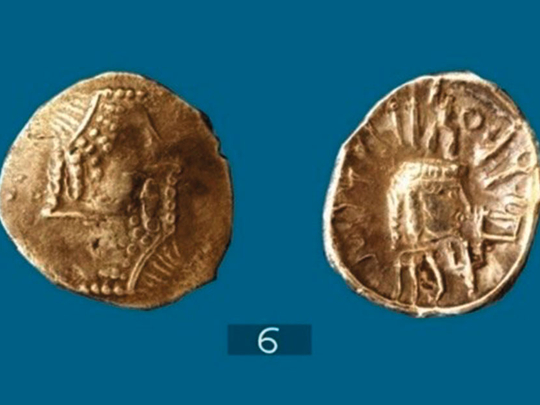
Manama: A Saudi scientific team has discovered a pottery jar containing more than 1,000 ancient coins, metal seals and stones with inscriptions in the Ancient South Arabian script (Musnad) dating back to the first century.
The rare archaeological find by the team under the Saudi Commission for Tourism & National Heritage (SCTH) is the latest evidence of the cultural, social and political prosperity of Al Okhdood in Najran in southern Saudi Arabia, Saudi Press Agency (SPA) reported on Wednesday.
Saudi tourism authorities refer to Al Okhdood as one of the most important monuments and archaeological sites in the kingdom.
The site features a castle built of stones and surrounded by a 235-metre long wall that has one gate on its west side.
The carvings and inscriptions on the stone that date back more than 1,750 years make the city of Okhdood among the richest ancient sites in the Arabian Peninsula and a highly important cultural tourism and historical landmark in Najran, an area deeply steeped in history with more than 100 archeological sites.
The origins of Najran’s civilisations, according to the latest archaeological discoveries, extend back to the Upper Paleolithic period.
Archeologists have also found traces of ancient lakes that have dried out now, but which proved the historical importance of the region as a focal point in the struggle of the ancient Arab kingdoms seeking to control the green oasis and to benefit from its economic significance as a major conduit for highly valued trade routes.
Another historical landmark of Al Okhdood site is the hole drilled by the pagan king of Humairi and which dates back to the time when Christianity evolved.
Historians believe that around 1,500 people who converted to Christianity in 525 AD were burnt inside the hole in which wood and fuel were placed.











